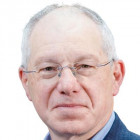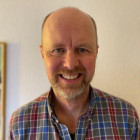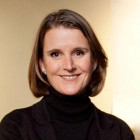Presentation Panel
Embedding Soft Skills to Enhance Future Employability
Date Friday, Nov 25 Time – Room Koepenick I/II
In this panel we will discuss how 21st century skills can be part of a curriculum and even be taught in an online setting. How do you create a path of built-in personal development that can strengthen a student’s employability for the careers of the future?

Graham Hudson
Special Adviser, GA Partnership
Graham Hudson is a distinguished UK-based assessment consultant who has worked extensively for national examination boards and government agencies on managing and modernising examination systems. His career covers many milestones in educational and assessment reforms in the UK, including the introduction of GCSE examinations, national curriculum reforms and re-structuring A levels. He has delivered significant national marking programmes, undertaken nationally-funded research into the use of technology in assessment and introduced one of the first systems in the UK to scan examination scripts and mark from image. Latterly he has specialised in supporting business development for organisations and enabling the transition from paper-based assessment to digital delivery for many national and professional organisations. He has travelled extensively to promote and implement e-assessment solutions. He has a passion and vision for the future to harness the benefits and power of digitally enhanced learning and assessments for mainstream, national educational and assessment systems. In April 2021 he was appointed to the Board of Qualifications Wales - the regulator for examinations for Wales.

Per Bergfors
Associate Professor, cphbusiness, Denmark
Focus on the human aspect of technology. How can we secure that people apply their utmost abilities and at the same time feel happy? Talent development is conducted within business, culture and sport. My business scope is BtB marketing topics, with special emphasis on the digital marketing and e-commerce field. Data-driven marketing and demand generation through various business models and go-to-market strategies. Working with AI, ML, and tools to generate value from data. Building blocks are marketing, scientific methods, and people through talent development.
I have written several books and articles. Books within the field of research methods, articles that cover technology application within higher education, and how to build data-driven education and people development. Currently working on extracting knowledge from unstructured qualitative text data by applying and building AI and ML tools.
I teach at different levels - from board member education to bachelor students. My pedagogical approach is a combination of providing topic-related insights and building curiosity enabling you to follow and build your learning path.
I have been teaching and training sales and marketing professionals across EMEA and North America within primary technology-driven businesses. It provides me with a pedagogical approach that is adaptable and efficient in different cultural settings.
I supervise in the fields of BtB marketing, Digital business models, e-commerce, data-driven decision making, and talent development.
I have a master's degree in marketing and analytics from CBS in Copenhagen, a YMP from INSEAD, and a BtB specialization from LBS.

Niels Høyer
Lecturer, UCL University College, Denmark
I teach Innovation and Entrepreneuship students together with students within International Hospitality Management. Besides the more traditional topics within these two educations I am very engaged in how the students can develop transversal skills and personal characters that might help them in their future career
Moderator

Claudia Röschmann
Associate Director for Design Innovation, Texas State University, United States of America
Claudia Röschmann is a Professor in the Communication Design program in the School of Art and Design and Associate Director for Design Innovation in the Materials Applications Research Center (MARC). She was head of the Communication Design program from 2014 to 2020, and as graduate advisor directed the MFA program from 2010 to 2020. She brings 20+ years of international design experience and strategic entrepreneurial thinking to the university where she teaches human-centered design and design entrepreneurship. She also serves as the founder of the Design for America studio on campus, and is the co-founder of the 1 Million Cups Greater San Marcos TX community. Claudia gets very excited about international and cross-disciplinary projects, and speaks at conferences about design thinking and digitally engaged learning. Originally from Germany, she moved to New York in the 90s to work for Vignelli Associates before moving to Austin with her husband, where she runs ROESCHMANNdesign, a design studio focused on brand experiences for non-profit clients. Claudia loves to travel (preferably by sailboat, bike or foot) so she can spend time in bookstores and museums.
Integrating Talent Development Into An e-Business Bachelor Degree, Per Bergfors
This presentation explains how a soft skills training for e-commerce students of the Copenhagen Business Academy (cphbusiness) has been developed, implemented and assessed during 2020-2021.
Based on an assessment of the neurological preferred patterns of the students, we followed a path of built-in personal development where student developed individual consciousness, worked with inclusion and diversity in study groups, enhanced their individual employability profile and focused on critical thinking.
Compared to previous cohorts, we invested more thoroughly in coaching sessions. Fixed agenda topics on these session were: How did you use each other’s soft skills/talents? When have you seen them at play? How did these insights improved your learning?
We compared the results with a control group of other bachelor students studying finance who were not exposed to the assessment, personal development process or coaching sessions.
At the end of the experiment, we analyzed if the additional investment resulted in a more relevant employability profile for our students.
Overview
- How to integrate talent development into your curriculum.
- How to build soft skills as an integrated part of your curriculum.
Teaching Soft Skills Online With Innovation and Entrepreneurial Students, Niels Høyer
This presentation explains how you can help students to focus on their individual entrepreneurial journey in an online setting.
During the last two years, innovation and entrepreneur students at UCL started the 1st semester with the elective course “Self Leadership: Developing your entrepreneurial mind-set”. The course has been built on Fadel’s model of meta learning (Fadel, 2015), especially on the character elements Curiosity, Resilience, Mindfulness, Courage, (self)Leadership and Ethics.
In this session I will explain how I teach these untraditional topics at BA-level, both in an online and a physical setting. I will also discuss how soft skills in general can be part of the curriculum.
At the end of the session participants will get the chance to discuss their own experiences with teaching soft skills.
Overview
- How soft skills can be taught - also in an online setting.
- How soft skills can be taught at academies and universities.
A New Model for Critical Thinking – Addressing the Growing Global Skills Gap, Graham Hudson
The presentation will set out the PACIER model and sub-skills, explain the research base and provide examples of the assessments. It will relate the importance for universities in providing taught courses and the benefits that these can bring. It will provide information about how the courses are certificated and look to the way in which Universities can also leverage the use of micro-credentials.
By 2030, an estimated 85m people will need to be upskilled or reskilled to avoid an $8.5 Trillion loss in global GDP as a result of AI, automation, changing demographics and globalisation. The World Economic Forum (WEF) ‘Future of Jobs Report 2020’ has identified 85 million roles for which there will be a decreasing demand by 2025 with 97 million job roles for which there will be an increasing demand by the same time.
The latter, however, will require an increasing use of creative and critical thinking skills as well as the use of digital technologies, AI and machine learning – amongst others. As the OECD has stated, “There is a growing consensus that formal education should cultivate the creativity and critical thinking skills of students to help them succeed in modern, globalised economies based on knowledge and innovation.”
Of the top ten skills identified by the WEF as being critical for the workforce in 2025 and beyond, 50% relate to problem solving. The remaining 50% relate to other skills where the ability to adapt to changing circumstances and use technology (rather than knowledge and past experience) as a key support is required. The changes are being driven by five factors – globalisation which affects the competitiveness of employment; demographic changes as younger job seekers can cope with change faster; digitisation which determines the kind of intelligence that will run the new economies; the acceleration of changes in working practices that the pandemic brought and the on-demand economy, with the future of jobs being more project-based.
A growing number of enlightened Universities are recognising the need, therefore, to provide taught courses in critical thinking – either as a general course or within faculty disciplines or both. MACAT has developed the PACIER model which comprises six component skills (Problem Solving, Analysis, Creative Thinking, Interpretation, Evaluation and Reasoning) plus twenty-four sub-skills. This has been the result of ten years research and trialling and now implementation internationally – notably through the Ministry of Education in Egypt. The MACAT ecosystem has three elements – the framework (the PACIER model), the process (one of assessing where students are, teaching skills and tracking future progress) and the provision of support materials (critical thinking assessments, a comprehensive library of seminal works and taught masterclasses).